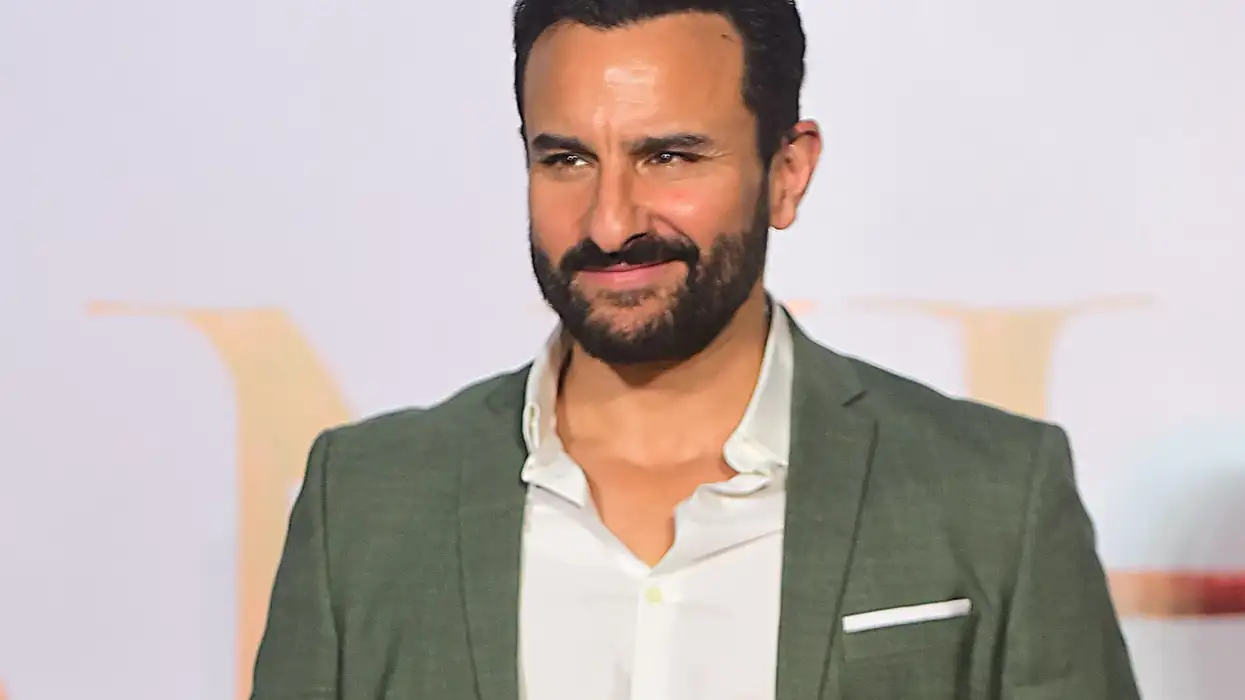Saif Ali Khan has been in the industry for the past 28 years. He started his career with the 1993 release Parampara. In these 28 years, Khan has seen a lot of ups and downs in his career and has evolved as an actor.
Recently, while talking to PTI about how he has evolved in cinema, the actor said, "I was completely clueless and now I'm a little bit less clueless, that's the extent of my evolving. I mean, one learns and life teaches you things. If you keep doing the same thing and you don't change, then you age in a different way. But if you do evolve and if you are learning and expanding, you can be interesting at 50. You have a lot of experience.”
"I think I've done well from the art I've collected to the homes I've built to the kind of heritage I've tried to look after, Pataudi, to the work I'm doing. It's been a creative life so far, especially with a bit of a bad start. I think there have been influences that I've been very lucky to have like the kind of academic educational influences or even the influences of my father and the legacy of my grandfather, the Tagores. There are a lot of things that come into play in what makes a person," he added.
At the starting of his career, Khan was called the chocolate boy of Indian cinema due to his clean-shaven look. However, with performances in movies like Being Cyrus, Ek Hasina Thi, and Omkara, he changed his image.
The actor said, "I've always thought that it's interesting to do different stuff really. I just thought Homi (Adajania, director of Being Cyrus) was very interesting, and making an English movie would be fun. I thought Ek Haseena Thi would be great because I was doing Kal Ho Na Ho and everyone said, ‘chocolate boy'. And I thought it'd be quite cool to play this kind of role. Ram Gopal Varma (producer of Ek Haseena Thi) gave me a chance to act like somebody else."
Khan feels that Omkara has set a benchmark for him. He said, "I think somewhere Omkara has set a benchmark early on in my career. I don't think you can do more and be totally different. So I'm very happy with that benchmark and very proud of that movie, but I constantly feel there has to be more to life than Omkara. For some of my other films, very often people have written that 'this is his best performance to date'. So that's great that they've said that. So as long as that keeps happening, it's good."
"I really think that Tanhaji was amazing and the role of Lankesh in Adipurush is amazing," he added.
Tanhaji was directed by Om Raut and Adipurush is also being helmed by him. The movie also stars Prabhas and Kriti Sanon in the lead roles.
Khan is happy that the film industry has evolved and there is no demarcation between characters that are heroic and villainous in nature. He feels that it was award functions that used to bracket actors into various categories like the best villain or best comedian.
He said, "A lot of award functions in India are extensions of TV channels. I think every major award function has a different channel. They try to get as many actors as possible to then say, give this guy best villain, give this guy best comedian and give this guy best actor. So it kind of loses credibility, but it suits the actors most of the time. They are happy to get an award and be part of the system. But the real winner is the TV channel. So they make a TV show out of it and we are all junior artists -- attending, performing, doing this, and doing that."




